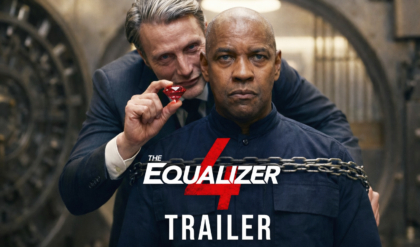The Assassin’s Creed franchise has long been a cornerstone of gaming, blending historical settings with stealth-action gameplay that captivates millions. However, Assassin’s Creed Shadows, the latest chapter set in feudal Japan, has stumbled into an unexpected spotlight—not for its stunning visuals or dual-protagonist system, but for its comically flawed artificial intelligence (AI). Fans have taken to social media, forums, and streaming platforms to share clips of AI mishaps that range from mildly amusing to downright absurd, sparking a wave of laughter and head-scratching across the gaming community. The sentiment, encapsulated by one fan’s quip, “I know Ubisoft’s AI is bad, but this is just hilarious,” has become a rallying cry for players marveling at the game’s unintended comedy. Let’s explore the AI blunders in Shadows, why they’re causing such a stir, and what they reveal about the state of modern game development.
The AI Fiasco: What’s Going Wrong?
At its core, Assassin’s Creed Shadows promises an immersive experience, letting players control Naoe, a nimble shinobi, and Yasuke, a powerful samurai, as they navigate a vibrant 16th-century Japan. Stealth and combat are central to the series, relying heavily on enemy AI to create tension and challenge. Unfortunately, the AI in Shadows has been anything but challenging, with behaviors that defy logic and break immersion in spectacular fashion.
One of the most widely shared examples involves enemy guards who seem oblivious to the chaos around them. In a viral clip circulating on X, a player assassinated a guard in plain sight of his comrade, only for the second guard to pause, look confused, and resume patrolling as if nothing happened. “It’s like they’re programmed to forget their best friend just got shanked,” the poster joked, racking up thousands of likes. Another video showed Naoe sprinting across a rooftop, knocking over pots and alerting guards—only for them to stare blankly upward, then wander off. These moments have fans dubbing the AI “cartoonishly bad,” a sentiment echoed across platforms like Reddit, where threads in the Assassin’s Creed subreddit compile “AI fail montages” that rival blooper reels.
Combat encounters are no less bizarre. Players report enemies standing motionless as Yasuke slashes them repeatedly, with sparks flying but no reaction until they keel over. One streamer, mid-battle, burst out laughing when an archer continued firing arrows at a wall despite being flanked by the player. “This guy’s aiming for the high score in missing,” they quipped, as chat exploded with emojis. Even more surreal are the glitches: NPCs (non-playable characters) getting stuck in animations, like a merchant endlessly sweeping the same spot or a horse galloping in place against a fence. These quirks have turned Shadows into an unintentional comedy show, with fans sharing clips under hashtags like #ACShadowsAI and #UbisoftOops.
Why the Laughter?
The humor in these AI blunders stems from their sheer absurdity in a game that otherwise aims for polish and immersion. Assassin’s Creed Shadows boasts breathtaking visuals—think Kyoto’s cherry blossoms glowing under moonlight or mist rolling over mountain castles. The contrast between this artistry and the AI’s clownish behavior creates a jarring, almost surreal experience. When a guard ignores a sword to the face or a villager walks into a wall for minutes, it’s not just a bug—it’s a betrayal of the game’s promise to transport players to a living, believable world.
Fans are quick to point out that Ubisoft’s AI struggles aren’t new. Older titles like Assassin’s Creed Unity were infamous for NPCs clipping through walls or crowds behaving erratically during chases. But in 2025, with Shadows carrying a reported $300 million budget, players expected more. The gap between the game’s ambition and its execution fuels the laughter, as fans revel in the irony of a AAA title tripping over basic systems. “I paid $70 for a samurai epic, and I got a slapstick comedy,” one Redditor wrote, summing up the mood.
Social media amplifies the hilarity. On X, players compete to post the most outrageous AI moments, turning glitches into memes. One popular image shows Yasuke standing atop a pile of defeated enemies, with a lone guard nearby casually sipping tea, captioned, “Bro, you good?” Twitch streamers have leaned into the chaos, hosting “AI fail challenges” where they deliberately trigger bizarre behaviors, like luring guards into traps only to watch them freeze in confusion. The community’s ability to find joy in these flaws speaks to gaming culture’s knack for turning lemons into lemonade, but it also underscores a deeper frustration with Ubisoft’s quality control.
Digging Deeper: The Roots of the Problem
To understand why Shadows’ AI is so erratic, we need to look at the complexities of game development. AI in open-world games like Assassin’s Creed is notoriously difficult to perfect. Enemies must react to player actions, navigate dynamic environments, and coordinate with other NPCs—all while running smoothly on varied hardware. Ubisoft’s sprawling worlds, packed with hundreds of characters and interactive elements, push these systems to their limits.
Insider reports suggest Shadows faced a rocky development. The game was delayed twice, from November 2024 to March 2025, with Ubisoft citing the need to “polish” key features. Some speculate that AI was a low priority compared to visuals or story, as Ubisoft leaned heavily on the game’s feudal Japan setting to win over fans. A 2024 Reddit post from the Ubisoft subreddit quoted an executive admitting that half the development team were junior staff, many working on their first major game. While inexperience doesn’t fully explain the AI woes, it hints at possible gaps in expertise or oversight.
Comparisons to other games highlight the issue. Titles like The Last of Us Part II or Ghost of Tsushima—the latter also set in Japan—feature AI that feels responsive and unpredictable, with enemies communicating and adapting to player tactics. In Shadows, guards often follow rigid scripts, breaking immersion when those scripts fail. For example, stealth mechanics rely on light and shadow, but enemies sometimes ignore obvious cues, like a torch being snuffed out nearby. Fans on Steam forums have noted that Assassin’s Creed Mirage (2023) had tighter AI, suggesting Ubisoft may have overreached with Shadows’ scope, stretching resources thin.
The game’s dual-protagonist system adds another layer of complexity. Naoe’s stealth-focused gameplay demands AI that reacts to subtle actions, like hiding in shadows or using a grapple hook. Yasuke’s combat-heavy approach requires enemies who can swarm or flank effectively. Balancing these styles likely strained the AI framework, leading to inconsistencies. One player recounted sneaking as Naoe, only for a guard to spot her through a wall, while Yasuke’s battles often devolve into enemies queuing up to be dispatched. These quirks suggest a system buckling under its own ambition.
Ubisoft’s Track Record and Fan Expectations
Ubisoft’s history with AI hasn’t exactly inspired confidence. Fans still chuckle over Assassin’s Creed III’s wolves that chased their own tails or Far Cry 5’s NPCs who’d drive off cliffs. Yet Shadows feels like a regression, especially after Mirage earned praise for its focused stealth. The franchise’s shift toward RPG-style games (Origins, Odyssey, Valhalla) introduced larger worlds but also diluted the tight AI of earlier entries like Assassin’s Creed II. With Shadows, Ubisoft promised a return to classic stealth roots, making the AI’s shortcomings all the more glaring.
Fan expectations were sky-high for Shadows, fueled by years of clamoring for a Japan-set Assassin’s Creed. When Ubisoft finally delivered, players wanted perfection—a game to rival Ghost of Tsushima’s polish or Sekiro’s precision. Instead, the AI blunders have become a lightning rod for criticism, amplified by Ubisoft’s broader struggles. Recent years have seen the company grapple with flops like Skull and Bones, workplace controversies, and fan fatigue over formulaic open-world design. The AI issues in Shadows feel like another misstep in a pattern, prompting some to question whether Ubisoft can still deliver a flawless blockbuster.
The Silver Lining: Community Creativity
Despite the frustration, the AI gaffes have sparked a surprising amount of creativity. Fans have turned glitches into art, with YouTubers crafting supercuts set to sitcom laugh tracks or dramatic music. One video, titled “Assassin’s Creed Shadows: The NPC Olympics,” shows guards tripping over crates, horses defying physics, and villagers monologuing to no one, racking up millions of views. On Twitch, streamers host “AI roulette” sessions, betting on what bizarre behavior they’ll encounter next. These moments have fostered a sense of camaraderie, with players bonding over shared disbelief.
Some argue the AI’s flaws add charm, giving Shadows a quirky personality. “It’s like playing a fever dream,” one Redditor wrote, comparing the game to Skyrim’s lovable bugs. Others see potential for patches, noting that Ubisoft has a history of post-launch fixes, as seen with Unity’s eventual stabilization. The developer has already acknowledged feedback, posting on X: “We’re aware of AI-related issues in Shadows and are working on updates to improve the experience.” Whether these patches can salvage the AI remains to be seen, but the community’s humor keeps the conversation lively.
What’s Next for Ubisoft?
The AI debacle raises bigger questions about Ubisoft’s priorities. With Shadows posting strong sales—reportedly 3 million players in its first week—the game isn’t a commercial failure. Yet the laughter risks overshadowing its strengths, like its gorgeous world and innovative mechanics. If Ubisoft wants to reclaim its reputation, addressing AI quality is crucial. Future titles, like the rumored Assassin’s Creed Hexe, will face intense scrutiny, and fans will expect smarter enemies and fewer glitches.
For now, Assassin’s Creed Shadows is a paradox: a technical marvel marred by moments of unintended hilarity. The AI blunders have given fans plenty to laugh about, but they also highlight the challenges of crafting massive games in an era of soaring expectations. As players continue to share their “cringe-worthy” clips, one thing’s clear: Ubisoft’s samurai epic has become a meme machine, for better or worse. Whether the laughter fades or grows louder depends on how Ubisoft responds—and whether they can teach their guards to stop ignoring the ninja in plain sight.





